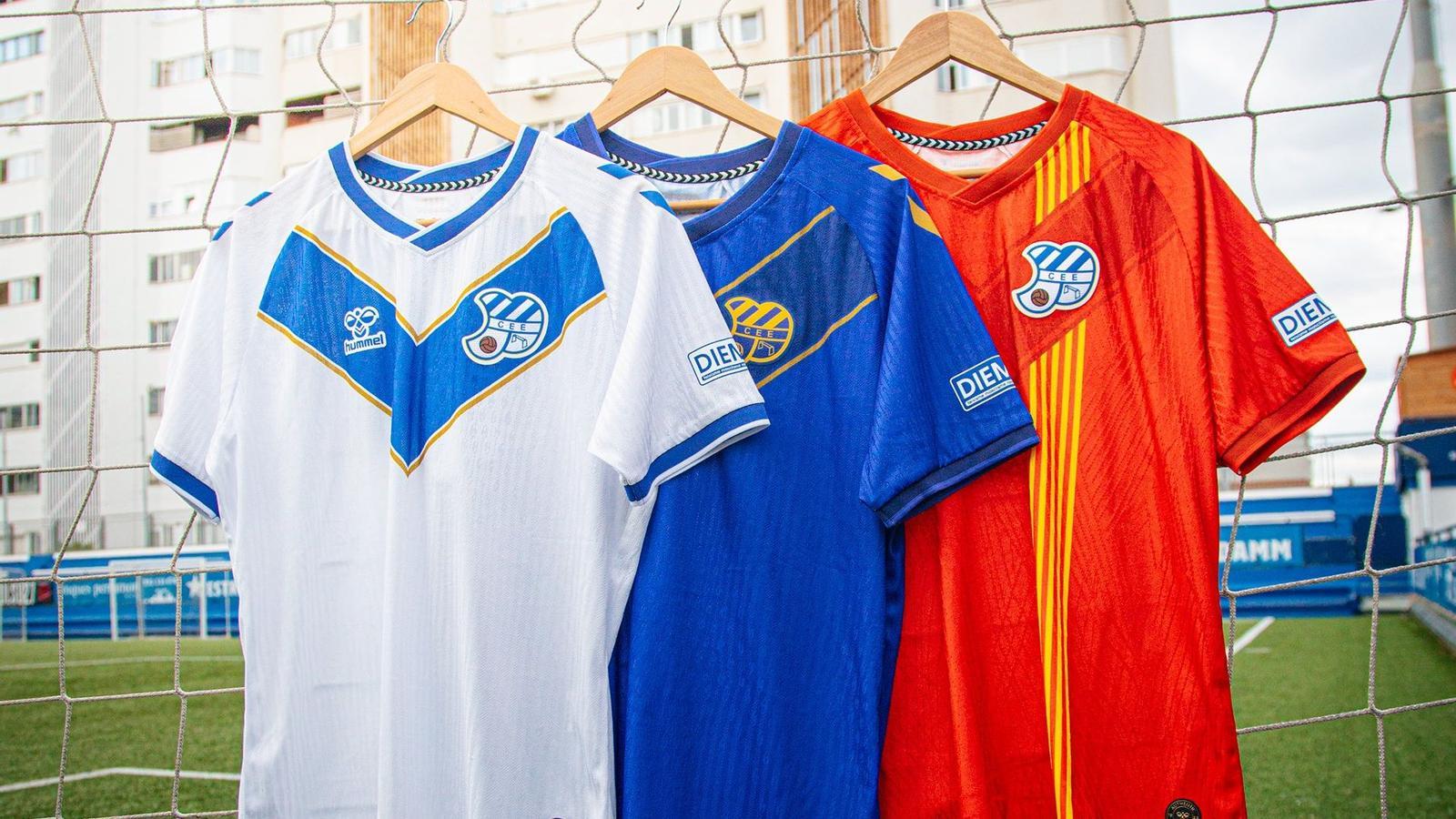The brand that stood up to China and Qatar takes root in Catalonia
The Danish brand Hummel dresses Europe, Badalona and Hospitalet


BarcelonaAside from those of world champion Argentina, the most iconic jerseys of the 2022 World Cup were those of the Danish national team; not because of the sporting achievements of the Nordic team, which was eliminated in the group stage, but because of the message their kits sought to convey. Hummel, the technical sponsor of the Danes, designed minimalist jerseys with its logo and the national team crest toned down, practically blurred, as a protest against "Qatar and its human rights record".
"We don't want to be visible during a tournament that has cost the lives of thousands of people—at least 6,500, according to what was revealed." The Guardian"We support the Danish national team, but that's not the same as supporting Qatar as the host country. We believe sport should bring people together. And when it doesn't, we want to point that out," explained the Danish brand, based in Aarhus and with over a century of history.
Tibet's banned jersey
Twenty-five years ago, Hummel became associated with one of the world's most controversial national teams: Tibet. It was born from the inspiration of Dane Michael Nybrandt, who in 1997, while cycling through the Himalayas and following an impromptu soccer game among monks, dreamed of becoming the national team's coach. At the time, he was neither a coach nor did the Tibetan people have a national team, but years later, his dream came true.
Tibet is known as the banned team due to FIFA and China's refusal to recognize it. China even threatened Denmark if it hosted the national team's first ever international match, which was finally played in 2001 in Copenhagen against Greenland. "Funding was one of our biggest headaches. We needed sponsors, but most companies weren't willing to work with us for fear of retaliation from the Chinese authorities. Hummel, which quickly saw an opportunity to differentiate itself from other sports brands, was an exception and became the official supplier of Michael Nybrandt, who years ago met the Dalai Lama and had his photo taken wearing the national team's blue and red uniform.
"T-shirts and sweatshirts were made with striking designs that, due to their symbolism, were sold all over the world. Both Hummel and Tibet received a visibility they'd never had before," Nybrandt comments about a profitable collaboration that didn't end well. In his opinion, "increasing commercial pressure for Hummel to expand in China" caused the firm to "terminate the contract." The banned team is now partnering with COPA Football. "Hummel was key to playing our first match and getting the project off the ground; but it was also a business for them, not a charity as many people think," Nybrandt concludes. Be that as it may, the Tibet shirts made by the Danish brand are true collector's items and command a fortune.
Hummel Takes Root in Catalonia
"The Europeanist scapular and the chevrons Hummel, symbols of the same passion for sport with values". This is how Europe announced that from this season onwards it would wear the Nordic brand and would leave behind the alliance with Adidas. The designs of the three shirts are personalised, not from a catalogue, and have caused a sensation among the fans of the third team in the grace of Desta. front, and also the limited edition, with the idiosyncratic scapular painted by boys and girls from Vila de Gràcia, which is used during the pre-season to raise funds for the crowdfunding campaign We are the resistance.
Badalona's new jersey, which, like Europe, has had Hummel as its kit supplier since this summer, also highlights the team's roots in the region through the municipal crest, which appears on the back of the shirt, and the promotional spot, filmed in some of the most emblematic locations in the third most populous city. The brand that stood up to China and Qatar, in addition to sponsoring Sunderland, Werder Bremen, Betis, and Celta, also dresses L'Hospitalet—the team from the second most populous city in Catalonia—and thus confirms its firm commitment to Catalan football.
